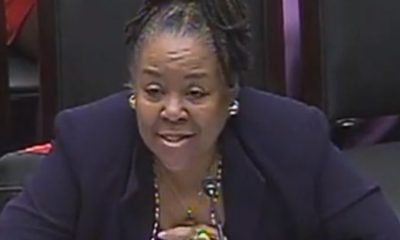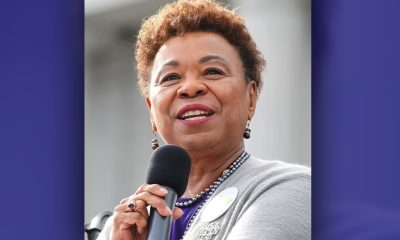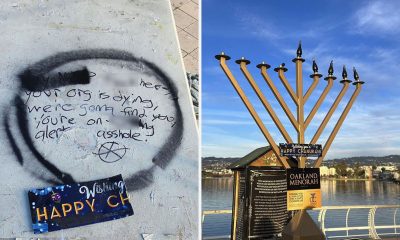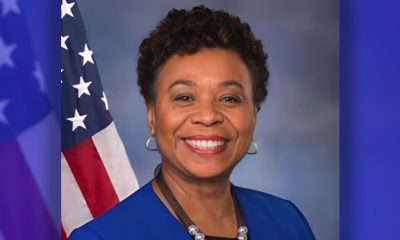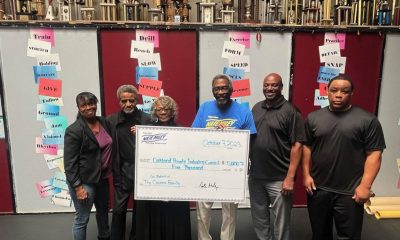Education
Without Sex Education, Youth Face HIV Threat
Sixty three percent of young people will have sex before they graduate high school, and 95 percent will have sex before they are married. For young people to make healthy discussions about sex, we need to provide them with the information they need.
April 10 was recognized as the first annual National Youth HIV/AIDS Awareness Day (NYHAAD). This year’s theme is “Engaging Youth Voices in the Response to HIV/AIDS.”
The day is set aside to recognize the impact of the HIV/AIDS epidemic specifically on young people and to educate the public, as well as highlight the exceptional work young people are doing across the country to strengthen the fight against HIV/AIDS.
Young people are disproportionately impacted by Sexually Transmitted Infections (STIs), including HIV and unexpected pregnancy. Comprehensive sexual health education helps to reduce rates by providing complete and accurate information.
Education enables young people to make more informed decisions about sex and healthy relationships. Research shows that effective sex educational programs have positive outcomes, such as delaying the initiation of sex, decreasing the number of sexual partners, and increasing the use of contraceptives and condoms.
Research has shown that young people in abstinence-only programs still engage in sexual activity before marriage and are less likely to protect themselves when they do have sex.
The awareness day “is an important way to increase awareness about HIV and its impact on young people in this country,” said Congresswoman Barbara Lee, co-chair of the Congressional HIV/AIDS Caucus, who introduced the Real Education for Healthy Youth Act (H.R. 1706).
“Our youth deserve comprehensive and evidence-based sex education so they can make healthy decisions and have healthy relationships,” said Congresswoman Lee.
Youth of color are disproportionately affected by the HIV/AIDS epidemic. The HIV diagnosis among African American young people, ages 13 to 24, who have sex with men, accounted for nearly 63 percent of all new infections in 2009.

Jakeem Jordan, 25, will sing “Impossible”, a gospel song, on Bobby Jones Gospel show in May. Jordan wrote “Get Tested”, encouraging youth to get tested without shame.
Jakeem Jordan of West Palm Beach, Florida, created “Get tested,” a rap song that encourages youth to get tested and know their status. Jordan says that God put it in his spirit a few years ago after he graduated as a medical assistant.
“A lot of my friends and I were having sex, but no one wanted to talk about their results,” he said. “So I thought, we need to start talking, knowing our statistics.”
Porchia Dees was born HIV-positive in 1986 in San Bernardino. “I always knew I was sick and knew it was called HIV/AIDS,” Dees said about growing up with the disease.
During seventh grade sex education in school, she first realized how stigmatized her disease was. “I could tell from the other children’s reactions how bad they thought HIV and AIDS were. So I didn’t share my status until high school,” she said.
There she dated a guy who knew about her status and after their breakup, he started spreading her business around the high school.
During those years, she had a rough patch of depression, started drinking and partying. In 2011, her kidneys failed and she was put on dialysis.
Dees says after the second dialysis treatment, her kidneys started functioning. “I felt like God keeps saving my life, and I’m here for a reason.”
She went back to school and started speaking out to combat stigma.
The CDC estimates that nearly 10,000 young people ages 13 to 24 were diagnosed with HIV in 2013, representing more than 20 percent of newly diagnosed cases that year.
Today youth believe their risk is low, which means that protection is not a priority. It is predicted that 50 percent of youth infected with HIV have no clue that they are positive and are likely to continue to infect others.
Activism
S.F. Black Leaders Rally to Protest, Discuss ‘Epidemic’ of Racial Slurs Against Black Students in SF Public School System
Parents at the meeting spoke of their children as no longer feeling safe in school because of bullying and discrimination. Parents also said that reported incidents such as racial slurs and intimidation are not dealt with to their satisfaction and feel ignored.

By Carla Thomas
San Francisco’s Third Baptist Church hosted a rally and meeting Sunday to discuss hatred toward African American students of the San Francisco Unified School District (SFUSD).
Rev. Amos C. Brown, president of the San Francisco NAACP and pastor of Third Baptist Church, along with leadership from local civil rights groups, the city’s faith-based community and Black community leadership convened at the church.
“There has been an epidemic of racial slurs and mistreatment of Black children in our public schools in the city,” said Brown. “This will not be tolerated.”
According to civil rights advocate Mattie Scott, students from elementary to high school have reported an extraordinary amount of racial slurs directed at them.
“There is a surge of overt racism in the schools, and our children should not be subjected to this,” said Scott. “Students are in school to learn, develop, and grow, not be hated on,” said Scott. “The parents of the children feel they have not received the support necessary to protect their children.”
Attendees were briefed last Friday in a meeting with SFUSD Superintendent Dr. Matt Wayne.
SFUSD states that their policies protect children and they are not at liberty to publicly discuss the issues to protect the children’s privacy.
Parents at the meeting spoke of their children as no longer feeling safe in school because of bullying and discrimination. Parents also said that reported incidents such as racial slurs and intimidation are not dealt with to their satisfaction and feel ignored.
Some parents said they have removed their students from school while other parents and community leaders called on the removal of the SFUSD superintendent, the firing of certain school principals and the need for more supportive school board members.
Community advocates discussed boycotting the schools and creating Freedom Schools led by Black leaders and educators, reassuring parents that their child’s wellbeing and education are the highest priority and youth are not to be disrupted by racism or policies that don’t support them.
Virginia Marshall, chair of the San Francisco NAACP’s education committee, offered encouragement to the parents and students in attendance while also announcing an upcoming May 14 school board meeting to demand accountability over their mistreatment.
“I’m urging anyone that cares about our students to pack the May 14 school board meeting,” said Marshall.
This resource was supported in whole or in part by funding provided by the State of California, administered by the California State Library via California Black Media as part of the Stop the Hate Program. The program is supported by partnership with California Department of Social Services and the California Commission on Asian and Pacific Islander American Affairs as part of the Stop the Hate program. To report a hate incident or hate crime and get support, go to CA vs Hate.
Community
ELITE Charter School Conducts Sit-In Protest at Vallejo City Hall After City Council Vote
ELITE Public School staff and students staged a sit-in at Vallejo City Hall on Wednesday afternoon to protest the City Council’s decision to vote against their Major Use Permit to expand into downtown. “We are deeply troubled by the turnover of the 6-1 vote, which we believe to be red-lining in 2024,” said Dr. Ramona Bishop, CEO of ELITE Public Schools.

By Magaly Muñoz
ELITE Public School staff and students staged a sit-in at Vallejo City Hall on Wednesday afternoon to protest the City Council’s decision to vote against their Major Use Permit to expand into downtown.
“We are deeply troubled by the turnover of the 6-1 vote, which we believe to be red-lining in 2024,” said Dr. Ramona Bishop, CEO of ELITE Public Schools. “We have followed all the requirements set forth for approval by the city and are dismayed by this sudden reversal of fortune. Our sit-in at City Hall is a testament to our unwavering commitment to justice and fairness.”
The sit-in was triggered after the Vallejo City Council members held a lengthy, special meeting on Tuesday evening to continue discussing the April 23 appeal that was made against the Planning Commission’s decision to grant ELITE a permit for expanding their charter high school into a retrofitted building in the heart of downtown.
During the deliberations, various options were presented to the Council for approving the project. These included a provisionary review period for the permit and imposing extensive conditions, such as limiting student enrollment.
The ELITE plan was to accommodate a maximum capacity of 400 students at their proposed school site, starting with an initial rollout capacity of 200 students in the first year.
Bishop rejected the suggestion by the City Council for a smaller charter capacity because the funding for the school was based on the projected number of students they would eventually seat.
During the meeting, council members complained about the lack of availability of economic impact reports that assessed the school’s potential impact on Vallejo’s downtown area.
Economic Development Director Michael Nimon sent a letter to the City Council, stating that while there was no official report, schools serve as economic generators to the surrounding areas of where they’re located.
“Schools also diversify uses and create pedestrian activity by bringing more people to downtown. Diversification of uses makes local economy more resilient by balancing residential, commercial, office, entertainment, and institutional uses,” Nimon’s letter said.
The letter also states that foot traffic is needed in an area of Vallejo that currently has minimal activity and the presence of the proposed school will likely not disturb any future developments.
Despite this, the council dismissed the letter as “merely an opinion” and not anything based on fact or concrete data.
Councilmember Peter Bregenzer, who remained silent throughout most of the seven-hour discussion, ultimately motioned for City staff to draft a resolution to approve the appeal and deny the project. The motion passed by a 4-3 vote.
About 50 students gathered on the second floor of the City Hall building where they chanted “Say it loud, say it clear, we don’t want no racists here” and “Where is the mayor? Bring him out, bring him out.”
The proposed high school has sparked intense debate, with many speculating that those opposed to the school are saying no to the expansion because the majority of the students are Black and Brown.
Retired Solano County Judge Paul Beeman and his wife, Donna, who filed the appeal against the school, have consistently denied that their opposition stems from racism or personal feelings toward anyone associated with the school.
In interviews with the Post, the Beemans seem to regard the proposed high school as a “nuisance” and an ill-advised choice for downtown development. They claim that it would be ineffective in economically revitalizing the community. However, they have provided no substantial evidence to support their opinions.
In contrast, ELITE has drawn parallels to redlining in relation to the community’s opposition to the proposed school location. Redlining refers to the discriminatory practice in which mortgage companies and other financial services systematically withhold loans and access to predominantly white neighborhoods from racial and ethnic minorities, particularly Black and African American communities.
“We’ve been fighting for this school for two years. We’re going to make our emergency, their emergency,” one student said in reference to Vallejo Mayor Robert McConnell’s previous comments about not rushing to make a decision on the school permit.
Within two hours of the start of the sit-in at City Hall, the City of Vallejo issued a statement that the building would be closed for the rest of the day because of the protest. The statement said that the loud noise from the protesters “hindered staff and visitors’ ability to conduct regular business.”
Although the mayor was not present at City Hall on Wednesday afternoon, interim City Manager Beverli Marshall addressed the ELITE group to answer several questions the students had. She explained the appeal process, how the different city officials played a role in the decision, and what the possible outcomes could be after the Council makes its final decision in a few weeks.
Students and staff were ultimately upset that they were being treated like criminals and that all their work over the last two years might be in vain since they believed that the Council had zero intention of ever granting them the permit in the first place.
The City Council is scheduled to meet for another special meeting on June 4 at 7 p.m. to continue discussing the future of ELITE Public Schools.
Community
Salesian Coach Knew Angel Jackson Could Play in WNBA
Back in 2019, Salesian Girls Basketball Head Coach Stephen Pezzola made a bold prediction about one of his players, Angel Jackson. “If she keeps putting in the work like she did for us, she could be in the WNBA,” the coach said. That turned out to be very true. Last month, the Las Vegas Aces selected Jackson with the 36th overall pick in the 2024 WNBA Draft. She is the second player from an Historically Black College or University, or HCBU, to be selected in the draft in 20 years.
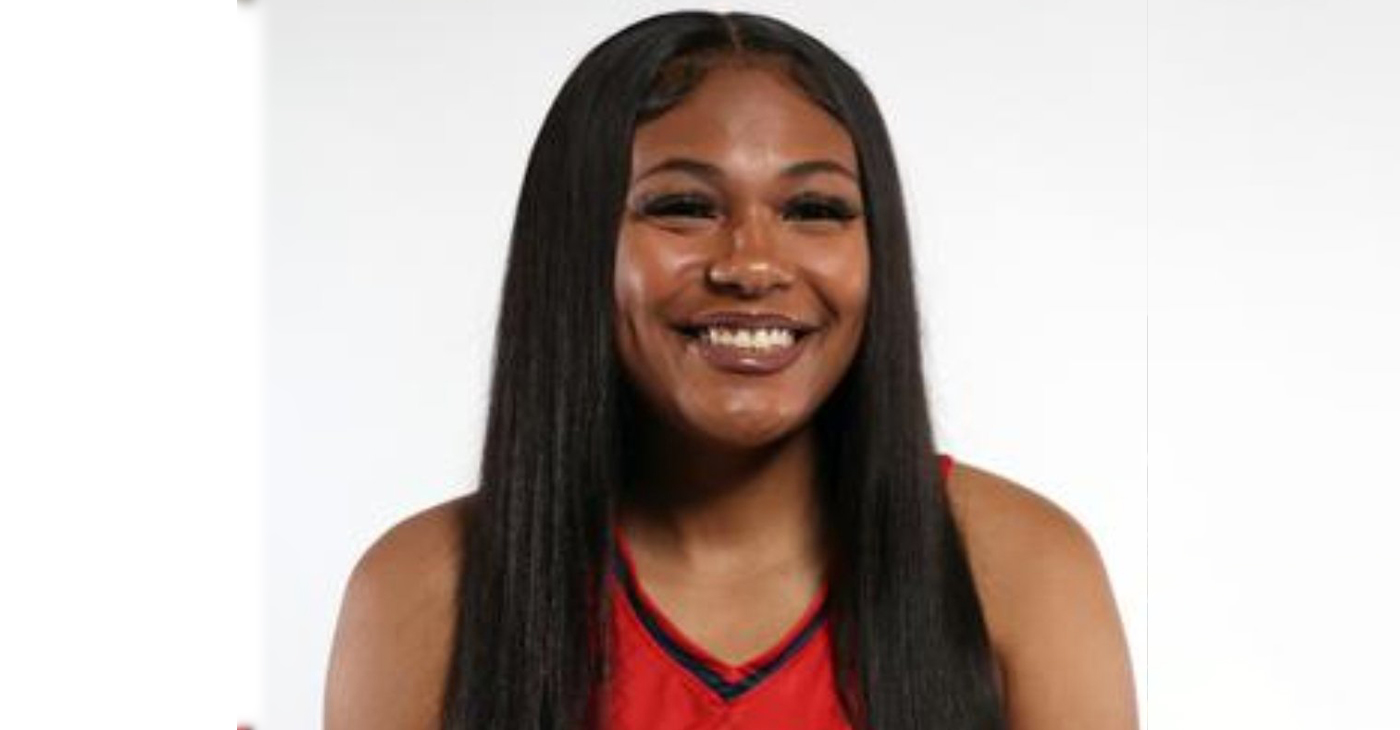
The Richmond Standard
Back in 2019, Salesian Girls Basketball Head Coach Stephen Pezzola made a bold prediction about one of his players, Angel Jackson.
“If she keeps putting in the work like she did for us, she could be in the WNBA,” the coach said.
That turned out to be very true. Last month, the Las Vegas Aces selected Jackson with the 36th overall pick in the 2024 WNBA Draft. She is the second player from an Historically Black College or University, or HCBU, to be selected in the draft in 20 years.
Jackson’s success came as little surprise to Pezzola, who last year led the Pride to their 8th North Coast Section championship since he took over the program in 2008-2009. In 2019, Pezzola commended Jackson as “a very coachable kid” from the time she arrived at Salesian.
Tomekia Reed, her coach at Jackson State, shared similar sentiments, noting Jackson worked “very hard” to reach this moment.
“She came into our program doing great things and never looked back,” Reed told the Clarion Ledger. “She has trusted our leadership as we were able to develop her into an amazing player. I have watched her improve tremendously over the years.”
The 6’-6” Jackson played three seasons at the University of Southern California before transferring to Jackson State. She was ranked 10th in the NCAA in blocked shots and averaged 10 points per game in her final college season.
She finished her collegiate career with 1,047 points and was twice named Southwestern Athletic Conference Defensive Player of the Year.
As the 36th pick, Jackson was the final pick in the 2024 NBA Draft. In a television interview, Jackson said she didn’t expect to be picked, and called the moment “surreal.”
“It made me feel so appreciative that HBCU is getting back on the map again,” she said.
All she could do in that moment was cry.
“I called my mom immediately, and she started crying,” Jackson said. “It was the best moment you can feel as a young lady.”
There’s no stopping Jackson now. “The sky is the limit,” she said.
Her high school coach agrees.
“I knew that Angel could do it,” Coach Pezzola told the Richmond Standard this week. “We are so proud of Angel and what she has accomplished. It was an honor and joy to coach Angel at Salesian.”
-

 Community3 weeks ago
Community3 weeks agoFinancial Assistance Bill for Descendants of Enslaved Persons to Help Them Purchase, Own, or Maintain a Home
-

 Business3 weeks ago
Business3 weeks agoV.P. Kamala Harris: Americans With Criminal Records Will Soon Be Eligible for SBA Loans
-

 Activism4 weeks ago
Activism4 weeks agoOakland Post: Week of April 10 – 16, 2024
-

 City Government4 days ago
City Government4 days agoCourt Throws Out Law That Allowed Californians to Build Duplexes, Triplexes and RDUs on Their Properties
-

 Activism2 weeks ago
Activism2 weeks agoOakland Post: Week of April 24 – 30, 2024
-

 Community3 weeks ago
Community3 weeks agoAG Bonta Says Oakland School Leaders Should Comply with State Laws to Avoid ‘Disparate Harm’ When Closing or Merging Schools
-

 Community3 weeks ago
Community3 weeks agoRichmond Nonprofit Helps Ex-Felons Get Back on Their Feet
-

 Community3 weeks ago
Community3 weeks agoOakland WNBA Player to be Inducted Into Hall of Fame


